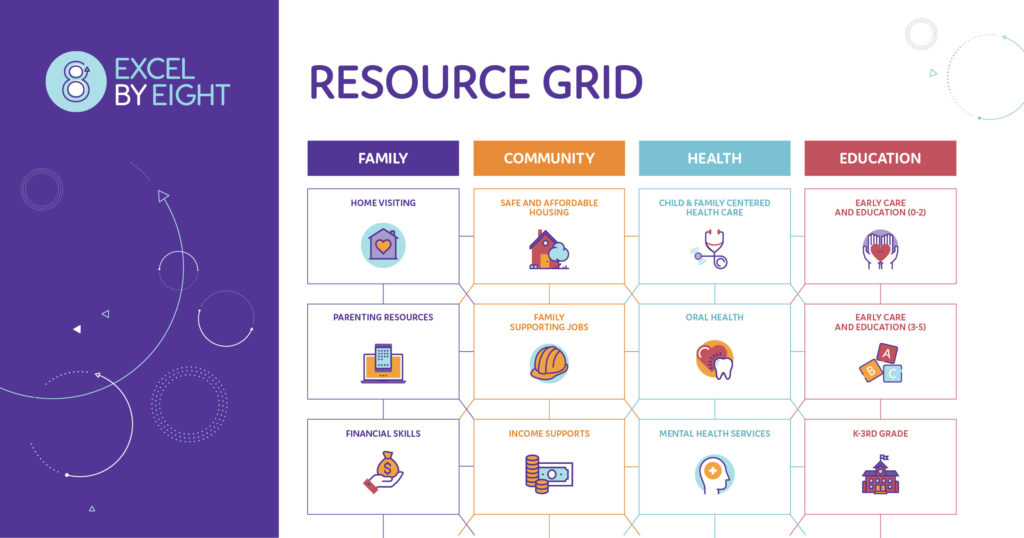The following post was originally written by Angela Duran as an op-ed in Arkansas Business and published Monday, October 26, 2020. The original article can be found here.

How can we help equip our children, the future Arkansas workforce, with the skills to succeed in school and life?
Decades of research show no single practice, policy or program will determine whether kids are able to reach their full potential. Rather, data shows their ability to thrive depends on reliable access to many resources, such as regular well-child visits, home visiting programs and quality early childhood education. Without this foundation, children can face a range of developmental delays, with long-lasting consequences for their health, well-being and our state’s economic future.
The array of resources kids need to thrive operates like a power grid. Yet far too often, Arkansas children’s access to this grid, which includes comprehensive family, community, health and education-related supports, is incomplete or malfunctioning. Occasionally, the connections are frayed or broken altogether, making it difficult for them to access what they need.
Take Pulaski County. According to data gathered by Excel by Eight (E8), 1 in 4 local children live in poverty. More than 1 in 5 are experiencing food insecurity. Today, there are only enough quality child care slots for 45% of the county’s infants and toddlers. In addition, many families lack access to necessities like proper developmental services, financial resources or even opportunities for regular exercise.
In Pulaski County and across the state, E8 is committed to creating reliable resource grids, where all families and communities are equally plugged in. But we must shore up these local systems of support early on — even before Arkansas children are born.
Studies show the brain develops faster from birth to age 3 than in any other period in life. According to the Center on the Developing Child at Harvard University, a child’s early experiences help build the sturdy brain architecture needed for social-emotional intelligence, early executive functioning, self-regulation and literacy — skills essential to their future. Other research reiterates the importance of investing in high-quality programs that support children from birth. As Professor James Heckman at the University of Chicago noted, these early childhood development programs deliver a 13% annual return while preventing the need for more expensive interventions later on.
Fortunately, Arkansas leaders see the urgent need to strengthen our resource grids and are stepping up. In early 2020, Little Rock Mayor Frank Scott Jr. announced the city would become an E8 Community. His office has helped launch this community-driven initiative with the support of a local steering committee. This fall, he solidified his commitment by partnering with the Little Rock School District to turn four local elementary schools into neighborhood hubs, with wrap-around services for students and families in need. Under the guidance of his chief education officer, Jay Barth, the mayor has also formed a Lifelong Learning Cabinet. Soon, the panel will join with local education-focused groups, including E8, to help advance educational policies and community-based initiatives for all in the city.
Other E8 Communities in Conway, Independence, Monroe, Sevier and Union counties are continuing to tackle challenges. Steering committees composed of members who represent different “squares” of the grid are gathering data to identify gaps and weak spots in their local communities, so they can develop targeted action plans.
As we’ve seen from our recently released annual report, available at excelby8.net, E8 and Arkansas have made measurable progress in improving children’s health and education outcomes. However, there’s much more work to do. If we want to hit our goals within the next decade, we must recommit to improving and aligning our state’s practices, policies and programs to help all children, starting before birth, meet their full potential. It will require all of us — as individuals, businesses, policymakers and community leaders — to strengthen the grid. But together, we can put our children and our economy on a strong path for the future.
